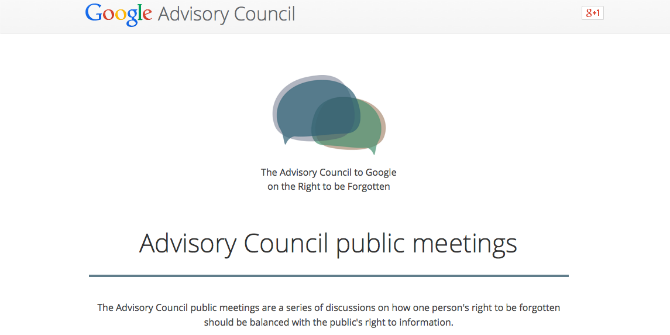 Next week, the UN General Assembly will agree a text that reviews the outcomes of the 2003/2005 World Summit on the Information Society (WSIS) and, to the extent that agreement can be reached, also points forward to the future. In the second in a series of posts on the WSIS+10 process edited by LSE alumna Anri van der Spuy, David Souter, Visiting Senior Fellow at the LSE, and Managing Director of ict Development Associates, asks whether the agreement will address today’s and tomorrow’s challenges of Internet governance, or merely those of yesterday?
Next week, the UN General Assembly will agree a text that reviews the outcomes of the 2003/2005 World Summit on the Information Society (WSIS) and, to the extent that agreement can be reached, also points forward to the future. In the second in a series of posts on the WSIS+10 process edited by LSE alumna Anri van der Spuy, David Souter, Visiting Senior Fellow at the LSE, and Managing Director of ict Development Associates, asks whether the agreement will address today’s and tomorrow’s challenges of Internet governance, or merely those of yesterday?
Defining Internet governance
It was WSIS that first gave substantive geopolitical prominence to the issue of Internet governance, afforded it a ‘working definition’, and clarified dividing lines over national and international, and over multilateral and multistakeholder, ‘roles and responsibilities’.
The working definition in WSIS’ Tunis Agenda refers to Internet governance as ‘the development and application by governments, the private sector and civil society, in their respective roles, of shared principles, norms, rules, decision-making procedures, and programmes that shape the evolution and use of the Internet.’ This is the terrain across which advocates of different concepts of Internet governance have contested for the past decade, where they have contested during negotiations in the current General Assembly process, and where they will continue to contest into the future. It includes both ‘narrow’ Internet governance (IG) – concerning the technical evolution of the Internet – and ‘broad’ IG – concerning its use, and thereby its interface, with other aspects of economy, society and culture.
What was, and is, at issue?
International texts like those agreed at WSIS are geopolitical compromises, studded with ambiguity where agreement can’t be reached. The text elaborating the definition of Internet governance in the Tunis Agenda was intensively negotiated in the Summit and an earlier Working Group, and closely contested in three main areas – concerning the desirability or otherwise of: a) internationalised control over critical Internet resources (what might be called ‘the ICANN (Internet Corporation for Assigned Names and Numbers) question’); b) government oversight over the use of the Internet and its impact on national societies; and c) the relationship between governments and other stakeholders in the development of Internet governance (the question of multistakeholderism). In each case, while governments were divided, those in other stakeholder communities – the private sector, civil society, the technical community – tended to favour non-governmental or multistakeholder approaches.
Out of these disagreements, governments represented at WSIS agreed two mechanisms: the Internet Governance Forum (IGF), a multistakeholder discussion space without decision-making powers; and ‘enhanced cooperation’ – a term of deliberate and studied ambiguity – ‘to enable governments, on an equal footing, to carry out their roles and responsibilities, in international public policy issues pertaining to the Internet, but not in the day-to-day technical and operational matters, that do not impact on international public policy issues.’ There is little agreement on the meaning of ‘enhanced cooperation’, let alone on whether it has taken place.
The direction of travel
It is this framework that the present General Assembly process is reviewing – and herein lies the problem. By their nature, review processes look backwards; and looking backwards is no way to set the agenda for the future in a fast-moving area like the Internet. As the UN Commission on Science and Technology (CSTD) emphasised in its ten-year review, Implementing WSIS Outcomes (for which I was lead consultant), both the Internet and the Information Society are now very different in scope, scale and significance from the time of WSIS.
Changes in scope and scale are fairly obvious. The number of people using the Internet today is around three times that in 2005. The ways in which it is accessed have been transformed by mobility and broadband. Many of what are now core aspects of usage – including social media and cloud computing – had barely begun when the Tunis Agenda was agreed. The commercialisation of data and concentration of market power in Internet corporations have altered relationships between users of the Internet, infrastructure and service providers. Above all, the Internet has become critically important to most aspects of economy, society and culture, certainly in developed countries and increasingly so in developing countries.
The implications of Internet development
These changes have two implications for Internet governance. The Internet is much more important than it was in 2005, but it is also very different. Its growing pervasiveness and impact require adjustments in thinking by both Internet professionals and governments.
Internet professionals need to re-evaluate core principles of the Internet’s first flowering for today’s realities. Adaptiveness is as necessary for the Internet’s governance mechanisms as it is for technical standards. Those mechanisms which emerged when the Internet was technically unsophisticated, non-commercial and only impacted on a few people in a small number of countries, are inherently unlikely to be as appropriate for today’s mass-market commercial, global Internet.
That is most obviously true at the interface between the Internet and other public policy domains. It is clear that the advent of the Internet has altered the parameters of mainstream governance, between citizens, government and business, both enabling and requiring changes in how governments do things. But this is not a one-way process. The more important the Internet becomes to economy, society and culture, the more its governance and norms must also conform to those of other policy domains. This requires changes in how the Internet is managed. It is not just governments that require this evolution in the relationships between stakeholders, but also principles of good governance themselves. The rule of law should rely on the consent of those governed, not on changing algorithms and online business models.
Internet governance needs to address the future, not the past
The scope, scale and significance of the Internet will continue to grow (indeed to accelerate) over the next decade as datafication and commercialisation intensify, the Internet of Things becomes established, algorithmic decision-making becomes more widespread, and today’s ‘unknown unknowns’ become tomorrow’s innovations. Internet governance arrangements that were thought appropriate for 2005, or 2015, are unlikely to be nearly so appropriate in 2025. Internet governance debates should focus on what is needed in the future more than what was needed in the past.
The beginnings of the necessary realignment are discernible. Some governments are now paying substantive, rather than rhetorical, attention to the interface between multilateral and multistakeholder approaches at international level. There is more discussion of the impact of evolving Internet business models on issues including privacy, taxation and economic regulation. Cybersecurity is an obvious area of importance at the interface between the Internet and mainstream governance. Only the last of these, however, is prominent in the current General Assembly negotiations, where its inclusion has been resisted by some important stakeholders.
The problem with today’s debates on Internet governance, is that they’re still yesterday’s debates. Arguments about ‘enhanced cooperation’ are a cul-de-sac. It’s the changes taking place in the fast lane of the motorway – the transition to cloud computing, the concentration of economic power within the Internet, the step change in the Internet-user interface which the Internet of Things is poised to bring – that will determine the future of the Internet and its growing impact on our societies. It’s in that fast lane that today’s debates about Internet governance need to be taking place.
This blog gives the views of the author, and does not represent the position of the LSE Media Policy Project blog, nor of the London School of Economics.





